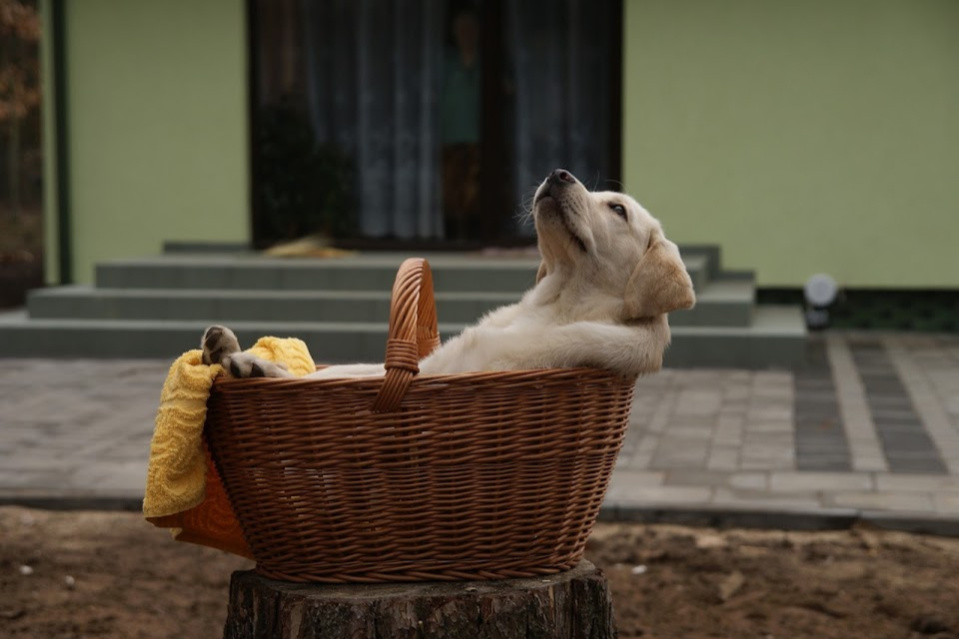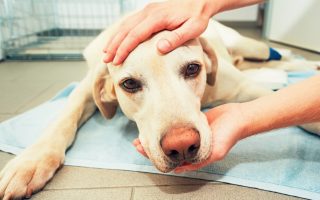How to Care for Newborn Puppies?
Puppies are some of the most adorable creatures on the planet. As fun as it can be to keep one for yourself. Raising a puppy is not always easy. When you bring your precious pet home for the very first time, prepare yourself for a journey. That will change the way you’ve been living up until now. But one thing is for sure, throughout that journey. Your little canine companion is always going to be right by your side. Your puppy will unconditionally love you will all that it’s worth and more. But, by adopting a puppy you take full responsibility for its well-being. So here are a few tips that might help you out in Caring New Pups.

Look for a good vet
One of the first trips that you and your new pups to caring make should be to the veterinarian’s office. Make sure you do your research before settling on one vet. Ask around, speak with other fellow pet owners and choose the one you. Your pup are most comfortable with & can do caring of the new pups. Because you’ll have to see each other a lot for the next few years. This visit will help ensure that your puppy is and helps in caring new pups. In fact healthy and free of any long-lasting or serious health issues.
You’ll get to know if there are any birth defects and if your puppy needs any immediate medical attention or not. For help in finding a vet. If you’ve adopted your puppy from a shelter you could ask them for recommendations. As they must have vets they have to visit on a frequent basis.
Finding a good vet is an essential part of adopting a puppy because. Whenever you need help with your puppy’s health. Your vet is the one you’ll be running to. That is why a comfortable relationship between you, your vet, and your puppy is necessary.
Make the most of your visit
Whatever queries or doubts you may have regarding your puppy, it’s better to sort it out in the first visit. Ask your vet if he or she has any recommendations as to what brand of food you should feed your pup. Ask about the proportions of how much to feed and when to feed. Discuss vaccination plans at length and since you are legally bound to microchip your puppy. It’s better you have your vet get it done. Microchipping is a form of permanent identification that will help locate your puppy should you ever separate.
You can also ask about when should your dog occur neutered. As neutering is said to have a positive effect on both a male and female dog’s health and behavior in general. Make a note of all the possible diseases and infections that you might have to watch out for during your puppy’s first couple of months. Also, discuss safe and long-lasting ways of external and internal parasite removal beforehand. Take all the necessary precautions you can take while your pet is young as that might help avoid future complications.
Opt for quality food
Since your puppy is going through a critical growth period, it is essential that it gets proper vitamins and nutrients. In this case, choosing a food specifically made for puppies. Rather than food for adult dogs will be a better choice. Check for the Association of American Feed Control Officials (AAFCO) mark on the brand of food you’re planning to buy to be sure that it contains all the nutrients your pups need moving forward to the next level of caring new companion.
Premium branded puppy biscuits occur often recommended as they are comprised of all the high-quality nourishments that your puppy might need. If your puppy is small or medium in size. A change in its diet to adult food could make after it is nine months of age. If however, your puppy is of a larger breed, you should wait till it’s two to make the change. Make sure there is plenty of fresh water available for your puppy to drink at all times. Feed it multiple times a day but, lesser as it grows older.
Bathroom and house training
Bathroom training is one of the first things a new pet owner prefers to do as puppies don’t really wear diapers and running around cleaning up after them can be a nightmare. It is a high priority on every dog owners list of things to train. There are a few signs you can look for that might help you figure out when your puppy wants to move out. Like, if your puppy starts moving round in circles, if it sits at the door and whines, or even if it starts sniffing the ground. Now and then accidents will happen but, it is necessary that you keep calm and are very patient with your pet.
Scolding will not help because as a puppy, it will not be able to understand what it has done wrong. Knowing when to take your puppy outside is also quite helpful and essential in potty training. Remember to praise your pup whenever it manages to relieve itself outside as positive reinforcement will help you train your puppy a lot faster. Some of the frequent instances are first thing in the morning after waking up, after every nap. Immediately after it drinks a lot of water.
Healthcare
There are high chances that in its first few months, your puppy will be more prone to certain diseases and illnesses. It is essential for you to keep a look out for any change in your puppy because it is important to cure the illness in its early stages before it progresses. There are certain symptoms like vomiting, lack of appetite, lethargy, diarrhea, nasal discharge, swollen eyes, and coughing. Among other things, almost 85% of young dogs are prone to some sort of gum disease. In order to treat that or prevent it from happening.
In this disease, the worms lodged up in the heart of the affected dog while they feed on the surrounding blood. The best way to deal with this is early prevention and puppies can start from when they’re twelve weeks of age. At some point in its life your little dog will affect by fleas and the best way to avoid a large infestation is prior prevention. You can use drops that have applied regularly to avoid future hassles. Lastly, worming is essential’ your pup worms every two weeks until it’s twelve weeks old and then once every month when they’re six months of age.
Obedience training
Giving your puppy proper training is bound to help you later in life as it will set him or her up for positive social interaction. Basic training is required for all pets, especially dogs. There are some breeds that are a bit too protective of their adopted families and are not very comfortable in the presence of strangers. A little training could help in such an instance. It is essential to set the ground rules early so that there aren’t any behavioral problems in the future. Obedience training takes time and requires immense patience so you must prepare yourself accordingly.
It also needs consistent effort on your part for your puppy to learn. Obedience training also provides mental stimulation for your puppy and it helps develop a bond between the two of you. Many pet owners have found that training classes are a great way to go and you can give it a try as well. Puppies occur usually at the age of four to six months accepted in these classes.
Just as important as training, socialization is essential for caring for your new pups. Much like obedience training, proper and frequent socialization helps sort out behavioral problems as well. In fact, with appropriate and adequate socialization, you might not even need training. All animals tend to be very territorial, especially dogs. They become very aggressive and feel threatened if they’re faced with strangers. It’s a natural instinct that they cannot always control. This is why if they meet other people like pet owners and their pets, they’ll be more accustomed to the company of new people.
It is said that, between three to seventeen weeks of age, puppies go through a ‘critical socialization period’, and their experiences, interactions, and development in this period will influence their behavior even as adult dogs. Plenty of opportunities to socialize with a wide range of people in different environments will make your pup friendlier. As an adult, he or she will be an adjusting dog who relates well with other animals, fellow dogs, and even people. Now, wouldn’t that make you a proud parent?







